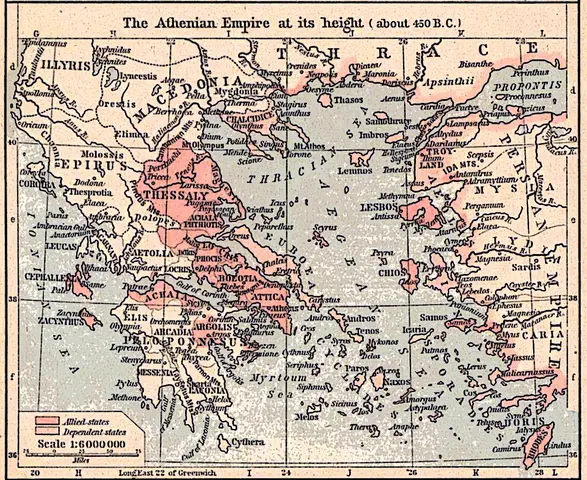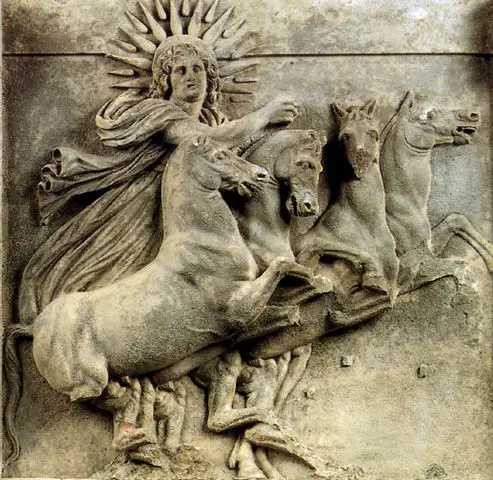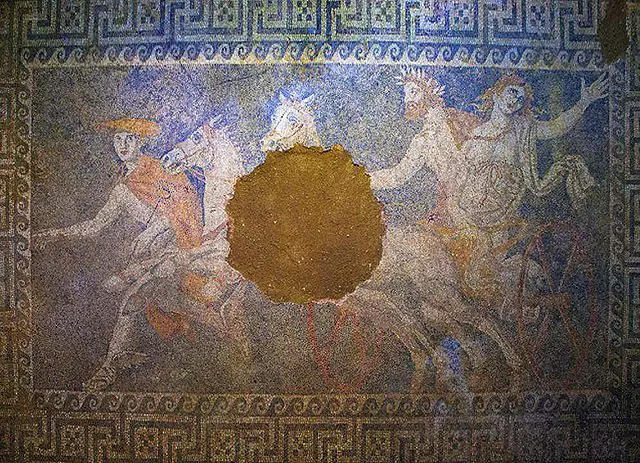| Further Reading | Top 3 Greatest Ancient Greek Inventors That Changed History |
When most people think of ancient Greece they think about either the 300 Spartans at the Battle of Thermopylae, Ancient Athenians such as Plato, or the great military campaign of Alexander the Great. However, the question remains “Was ancient Greece ever united?”
Generally speaking, ancient Greece was never truly united. There was a shared culture, language, and religion among the Hellenistic people. However, each city state of ancient Greece had its own standing military and the people would never identify as Greek but rather as from their city.
This article aims to demonstrate in simple terms why the Ancient Greeks were not united but rather a loose coalition of city states banded together by a band of shared culture.
Here at The History Ace I strive to publish the best history articles on the internet. If at the end of this article you enjoyed it then consider subscribing to the free newsletter and sharing around the internet.
Without further ado, here is an answer to the question of whether or not ancient Greece was ever united.
Our Concept Of “Unified” Does Not Apply To Ancient Greece
Today our definition of unified can not be applied to the ancient Greeks for several reasons.
When we think of a unified people we might associate the term with nations, or groups of people looking to accomplish goals that are larger than themselves. This simply did not exist in ancient Greece.
Each independent city state had a separate form of government, culture, and ethos that was created by the people. Over the course of the history of ancient Greece this would cause considerable problems for the people of what is now recognized as Greece.
A citizen of Sparta would not see themselves as having anything in common with a citizen of Athens. This was because both the Spartan and Athenian would have been born and grown up in two completely different worlds.
Sparta for example prioritized military training for all male citizens. The economy of Sparta was run off a combination of forced labor and low paid employees. The ‘free’ citizenry basis was in charge of administration and management during times of peace.
Athens on the other hand prioritized technology and commerce. This was because from the ground up the Athenian economy was built around coerced labor in the countryside extracting excess wealth to the city. From there the products would be shipped around the ancient world by a fleet of trading ships.
A free Athenian would look and behave completely differently than a free Spartan citizen. These differences also applied to all the city states around ancient Greece. Corinth, Thebes, and Syracuse would each have their own separate government, economy, and culture.
In fact by 250 BC there were over 800 ancient Greek city states with around 300 of them located in modern Greece today. Each one of these city states was completely different then the others except for a few outlying characteristics.
As such, it is impossible to say that ancient Greece was ever unified outside of major threats.
Brief Moments Of Unity Among The City States Of Ancient Greece
During the history of ancient Greece there does exist some brief moments of Pan-Hellenic unity against an outside force. However, this was anything but a fully unified state and more like a brief truce among competing city states to focus upon a larger problem.
The Ancient Mycenaean Greece Period: 1600-1100 BC
There were times of brief “unity” however historians have very little sources which depict these times in great detail.
We know that sometime during the ancient Bronze age a unified culture came to dominate Greece. This culture was called the Mycenaean culture and it is believed to have started the shared Hellenic culture that historians see during ancient Greece.
Further it was during this Mycenaean period that many of the largest cities would become populated. Athens, and Thebes would get their start during this period.
The Mycenaean culture would collapse sometime around the 10th century BC from unknown causes. We have evidence of several large wars that this quasi-unified Greek population fought against what is believed to be outsiders.
The Trojan war is an example of a ‘unified’ Greece fighting against another culture. Historians do have evidence of large scale invasions done by a unified coalition of Mycenaean Greeks against people in modern Turkey.
However, not much primary source evidence survives from this time period. It’s hard to determine if Greece was unified during this time period.
The Delian League’s Opposition To Persian Control: 500-450 BC

Another example of brief Pan-Hellenic unity comes from the Delian league’s attempt to remove Persian influence from the Aegean sea.
Sometime around 530-520 BC Athens was gaining enough power to challenge the Persian Empire. In 499 BC Athens supported several revolts of Greek cities on the Ionian coast of Turkey against the Persian King Darius.
Because of the growing Persian influence in ancient Greece many of the once independent city states would join the Delian League headed up by Athens. This league was designed to protect the Hellenic people against the Persian invasions which were sent to subjugate Athens for its support of the Ionian revolts.
From 490-460 The Delian League and the Persian Empire would fight a series of large battles for control over the Aegean sea. Eventually Persia would be pushed out of Greece sometime around 460 BC.
However, once Persia was no longer an influence the Delian League quickly began to turn against itself. In a bid for power Athens would turn the league into an Empire sometime around 450 BC.
As a result of the breakdown of this league the Peloponnesian War would begin which saw the forces of Athens and her allies fight against Sparta and her allies.
Once again, ancient Greece was not united.
Conclusion
There you have it; an answer to the question of “Was Ancient Greece Ever United?”
This is inherently a hard question to ask. If you could travel back in time to Greece in 450 BC and ask a Spartan and an Athenian if they were similar you would get a resounding no. However, there do exist some examples of ancient Greek unity during rare occurrences.
Here at The History Ace I strive to publish the best history articles on the internet. If you enjoyed this article then consider subscribing to the free newsletter and sharing around the web.
Further, you can check out some of the other articles below.
-
How The American Revolution Changed The World

Here is how the American Revolution changed the world. Many people are not aware of just how important this event actually was.
-
Why The Roman People Loved Chariot Racing

Why did the Roman people love chariot racing? Well it all comes down to these 3 reasons.
-
The Design and Color of Roman Chariots

What was the design and color of Roman Chariots? Were they faster or slower then normal chariots? Well here is everything!
Sincerely,
Nick